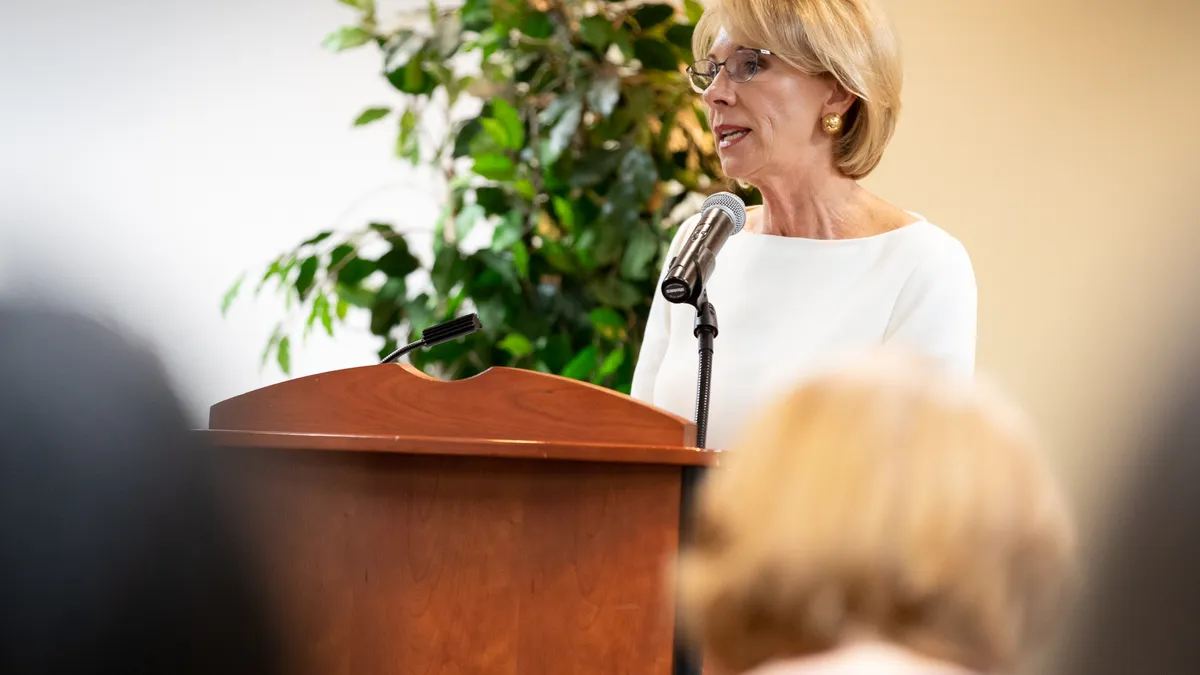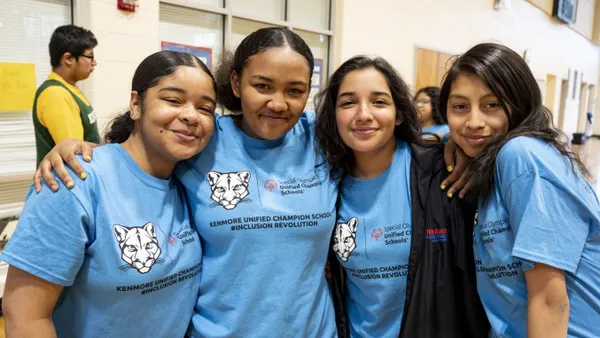Dive Brief:
- U.S. Secretary of Education Betsy DeVos, along with congressional Republicans, announced in a Department of Education news release Thursday a proposal promoting school choice by creating Education Freedom Scholarships. Sen. Ted Cruz of Texas and Rep. Bradley Byrne of Alabama will introduce companion legislation to create the initiative.
- Under the plan, taxpayers can choose to contribute to the program in exchange for federal tax credits, which would cap at $5 billion annually, and states would pick the scholarship's parameters. Unlike programs that use tax-credit scholarships specifically to give low-income or special education students access to high-quality schooling, this proposal would allow states to use the funds for dual-enrollment, apprenticeships, homeschooling and more.
- While the measure has support from some major figures — including Republican and former Florida Gov. Jeb Bush — Democrats and advocates are criticizing it for undermining public education or taking money away from U.S. public school systems. And with a Democrat-controlled House of Representatives, passing the legislation could prove to be a challenge, Education Week reported.
Dive Insight:
As of 2018, the National Center for Education Statistics reported that of the 56.6 million students attending elementary and secondary schools, 50.7 million of them — or nearly 90% — would be enrolled in public schools. And multiple reports have continued to support the finding that, within these public schools, funding and inequity gaps still persist. So, if enacted, critics say, this policy would only continue to serve some — but not all — students by taking a chunk of already limited funds.
The proposal has quickly garnered attention from members of major education associations, including The School Superintendents Association (AASA) and the National Association of Secondary School Principals (NASSP), both of which decried the measure. Sasha Pudelski, AASA's advocacy director, told Education Week that it's "ludicrous that the [Trump] Administration is willing to redirect $5 billion in federal funding to champion private school voucher schemes that have been proven ineffective in improving academic achievement and fail to serve all students." And in a statement, NASSP Executive Director JoAnn Bartoletti called the proposal "tone deaf" in "mobilizing behind a scheme to further starve public schools."
However, in an op-ed published in USA Today, DeVos, Cruz and Byrne wrote that the program "won’t take a single cent from local public school teachers or public school students."
The Education Department under DeVos has been a proponent of school choice, but its proposals haven't always been successful. The Trump administration's proposed fiscal 2019 budget, for instance, moved to allocate $1 billion for Opportunity Grants that would fund public and private school choice programs, but Congress rejected it, Education Week notes. And even before she took her spot in President Donald Trump's cabinet, DeVos had already referred to the U.S. public education system as a "dead end."
Additionally, as the subject of recent teacher strikes, including in West Virginia, it's clear the school choice debate remains controversial at both the state and federal level. But on Capitol Hill, DeVos's latest school choice push looks to have a murky future, with a lack of support from Democrats, who control the House, and potentially even some Republicans.














